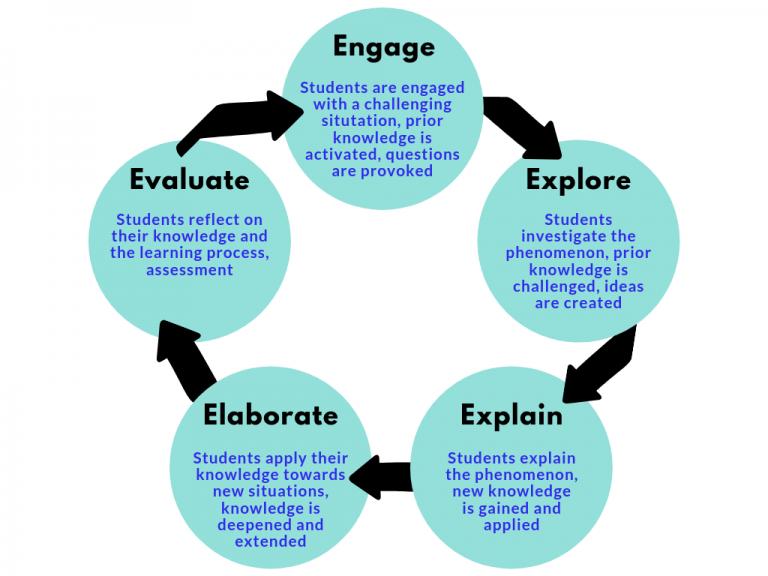Inquiry-Based Learning
Ed 304: Ed Psych and Human Development
Author: Lindsey Benham & Grace Bagley
Validated by: Emma Canann 1/28/23, Rebecca Marshall 2/22/23, April Greenwood 2/23/2023,
Trista Hunt 2/24/23
Disclosure: ChatGPT3 was used in the creation of this resource.
Summary:
Inquiry-based learning is a teaching approach that focuses on allowing students to take more responsibility for their learning. This will enable students to explore, discover, and learn about different topics independently, instead of being lectured by the teacher. This type of learning can be done individually or in groups.
Types of Inquiry-Based Learning
Confirmation Inquiry: The approach that seeks to confirm or verify existing knowledge or beliefs. It involves posing a question or hypothesis and conducting research to validate or invalidate it.
Structured Inquiry: The approach to learning that emphasizes active student involvement in the learning process. Students are encouraged to ask questions, make predictions, design experiments, and analyze data. The goal is to help students develop critical thinking and problem-solving skills, as well as a deeper understanding of the subject matter.
Guided Inquiry: A learning and teaching approach that emphasizes active learning, student-centered inquiry, and critical thinking. Teachers play the role of facilitators to guide students in the structured process of identifying research questions, gathering and analyzing information, and making connections between new and existing knowledge.
Open-ended Inquiry: A more free-form approach that allows students to research questions or topics without predetermined responses or outcomes.
Exploration and Analysis: This is when students conduct research, design experiments, and collect data from multiple perspectives and sources.
Formulating Questions: This is when a student is oriented to a problem or goal.
Celeste Elizabeth Wilson, a researcher at the University of Mary Washington, published, "The Effects of Inquiry-Based Learning and Student Achievement in the Science Classroom". It
claims that:
"Research has shown implementation of inquiry-based learning has a positive and direct relationship to student achievement. Planning and developing inquiry-based learning lessons can be time-consuming and resources can be limited. However, students can make direct connections and experience deeper learning through hands-on and experiential learning which has an overall positive benefit for student achievement, knowledge recall, and retention."
Wilson, Celeste Elizabeth. “The Effects of Inquiry-Based Learning and Student Inquiry-Based Learning and Student Achievement in the Science Classroom .” Eagle Scholar, 23 Oct. 2020.
Quiz Questions:
- Drawing Conclusions, Exploration &Analysis, Formulating Questions
- Exploration & Analysis, Formulating Questions, Drawing Conclusions
- Formulating Questions, Exploration & Analysis, Drawing Conclusions
- Students are actively involved in the learning process
- Students are given all the information they need about a topic
- Students are encouraged to ask questions and seek out answers
- Students are required to memorize facts
3. What are some examples of Inquiry-Based Learning? Select all that apply.
- Group Projects
- Writing an Essay
- Taking Notes
- Having class questions and discussion
- Lecture
- Field Trips
- Projects
- Science Experiments
This content is provided to you freely by BYU-I Books.
Access it online or download it at https://books.byui.edu/development_motivati/zYcdXesX.




